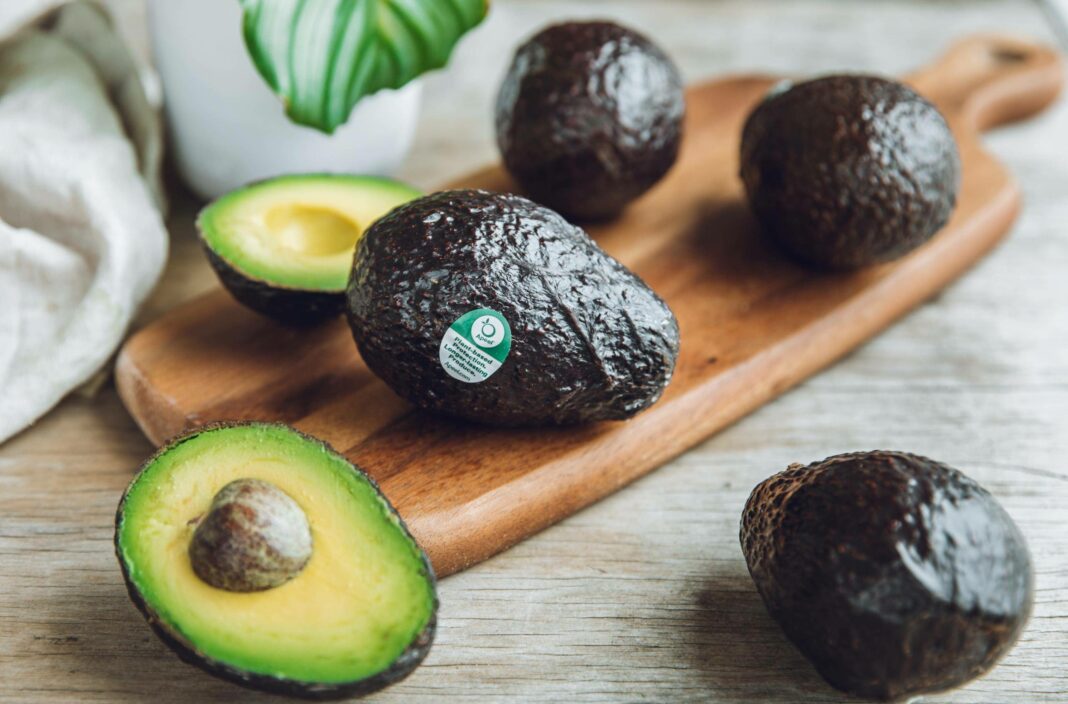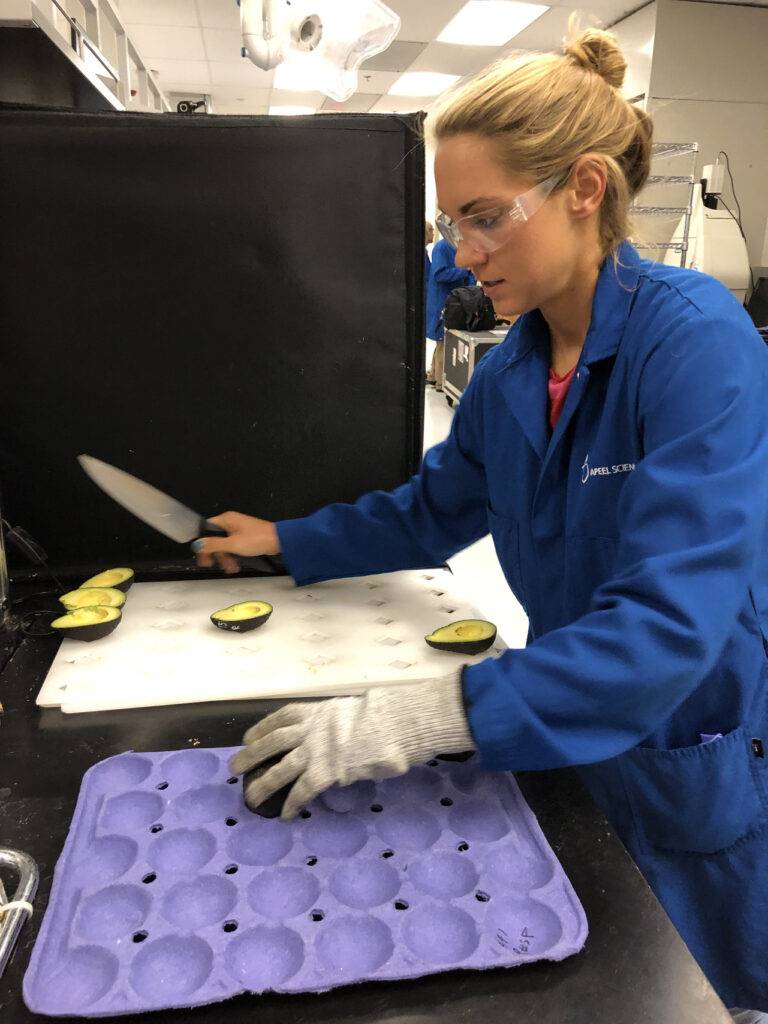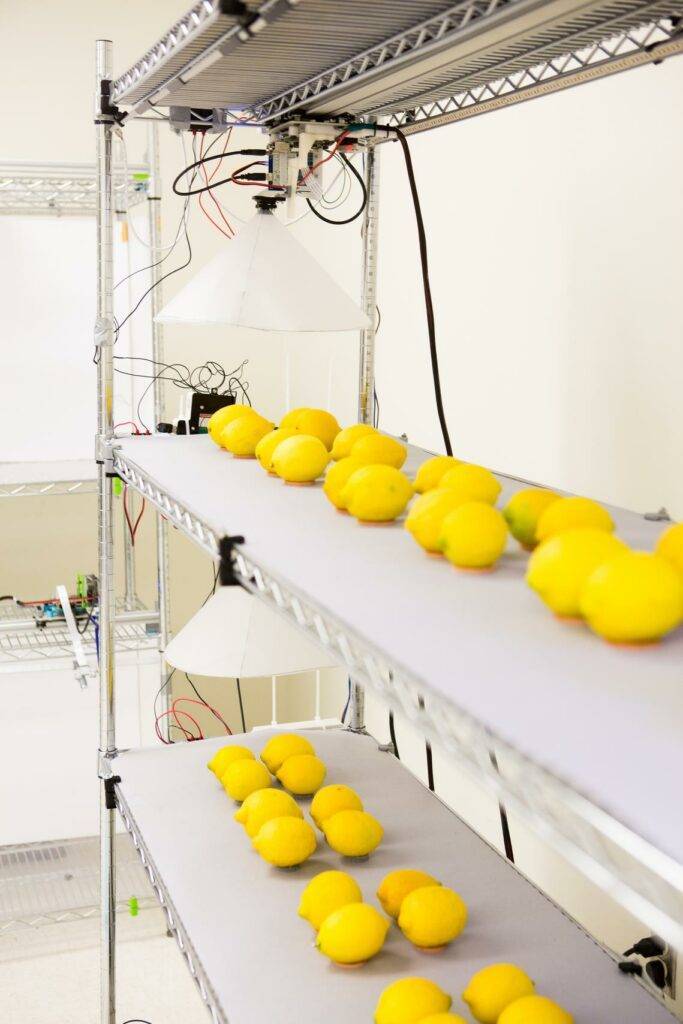Santa Barbara-based company Apeel wants to keep your produce fresher longer, reducing food waste and associated environmental ills.
Food waste is a massive environmental problem. The USDA estimates that thirty to forty percent of food in the US gets thrown out, with the percent of tossed produce nearly forty-five percent. And it happens at every step of the supply chain, from produce that rots in the fields for want of labor, all the way to the furry strawberries in your refrigerator.
All this waste squanders energy, land, and water, while contributing to global climate change and hunger, and adding up to billions of dollars simply thrown away. The U.S. EPA estimates that food waste, roughly a fifth of all municipal solid waste, is responsible for the greenhouse gas emissions of the equivalent of forty-two coal-fired power plants.
Goleta-based Apeel is trying to help. They’ve developed an edible coating, applied to certain fruits and vegetables after harvest, that keeps the produce fresher longer. The microscopic coating is made from purified fatty acids (monoglycerides and diglycerides), edible compounds found in a variety of plant-based foods. Basically, Apeel uses plant oils to mimic the waxy skins of fruits and veggies, adding a tiny extra layer of protection from oxygen that accelerates spoiling, while keeping moisture in.
The company is working on developing sensors that can tell how ripe a fruit is. Such a system could be used throughout the supply chain to prevent spoilage, even in the supermarket, where consumers could pop an avocado in a gizmo to find out when it will be ripe, and for how long.
Apeel doesn’t contain any GMOs, animal products, or any known allergens. But do we really want something coating our apples and avocados? Well, many fruits and veggies, even organic produce, have been coated with waxy substances for centuries to improve aesthetics, but these coatings do little to make foods last longer. Apeel’s coating can reduce the need for refrigeration, and even packaging. Apeel-coated produce has been sold in 20,000 grocery stores in the US and Europe since 2018 and 2019, respectively. Sometimes the fruit will have an “Apeel” sticker, but not usually.
On a recent trip to the company’s 100,000-square-foot headquarters (they have another HQ in the Netherlands), VP Lauren Sweeney talked about Apeel’s rapid growth from its founding in 2012 to its current market, including a recent deal with citrus-grower Limoneira. The company was founded by UCSB-grad James Rogers, a materials scientist who wondered, while driving through the farms of the Salinas Valley, how there could be hunger in a world with so much abundance. Apeel has also had challenges, including restructuring in the last year that included layoffs of over 120 employees, from its peak of about 450 employees globally.
And in the “no good deed goes unpunished” category, Apeel was also the subject of a disinformation campaign this spring, with conspiracy theorists warning against eating fruit treated with the product. The conspiracy was based on a) the fact that the Bill & Melinda Gates Foundation gave research grants to Apeel in the early 2010’s (Bill Gates is catnip for crazies), and b) a similarly named cleaning product is NOT edible. Despite being debunked by Reuters, Politifact, USA Today, and Snopes (among others), outlets like RFK Jr.’s Children’s Health Defense continue to question the safety of Apeel (though, it must be noted, even they found little to be alarmed about).
The large modern Goleta facility bristles with labs and machinery of all descriptions, and not a little bit of slooooowly rotting produce. Technicians tested avocados, a good test case for Apeel, since their perfect ripeness can be hard to judge and seemingly comes and goes in a flash. Testing shows “peak ripeness” for avocados extended by two to three days with Apeel. But beyond that, the company is working on developing sensors that can tell how ripe a fruit is. Such a system could be used throughout the supply chain to prevent spoilage, even in the supermarket, where consumers could pop an avocado in a gizmo to find out when it will be ripe, and for how long.
In 2022, Apeel estimates that they prevented the waste of 44 million pieces of fruit, avoiding the equivalent of 7,000 tons of CO2 emissions (like planting 110,000 trees). It’s a small bite out of a huge problem, but it’s a start.
To learn more, visit Apeel’s website.




